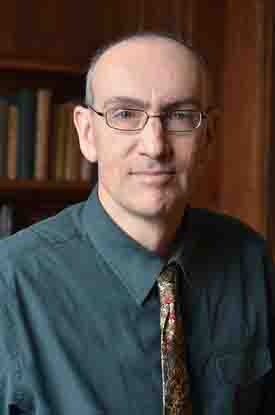
Michael Marsland
In response to concerns about faculty salaries, Dean of Faculty of Arts and Sciences Tamar Gendler is in the process of appointing a new committee to examine how faculty members across the FAS split their time in administrative, teaching and research roles.
In November, the 2016-18 Committee on the Economic Status of the Faculty issued a 71-page report recommending that Yale increase the salaries of Faculty of Arts and Sciences ladder faculty to close the gap between Yale and its peer institutions “as quickly as possible.” Following the report, Gendler and University Provost Benjamin Polak held a town hall for FAS faculty members last month to discuss the initiatives Yale is implementing to bolster faculty retention and recruitment. At the meeting, Gendler announced her plan to establish a new committee, which will examine current systems within the FAS for collecting “information about faculty activities in research, teaching and service,” research how peer institutions assess faculty activities and recommend ways to understand and document faculty accomplishments within the FAS.
“CESOF did an outstanding preliminary analysis, confirming that there is great value in pursuing this question in more detail,” Gendler said in a statement to the News. “I hope to announce the committee’s charge and membership later this month.”
The formation of the new committee comes in the midst of renewed campus-wide conversation about faculty retention and recruitment. Last month, the FAS Senate released the Faculty Excellence report, which recommended that Yale dedicate an additional $40 million per year to increase faculty compensation.
According to the CESOF report, Yale salaries were on par with those of its peer institutions from 1998 to 2009. But by 2016, full FAS professors’ salaries fell 5 percent below peer institutions’, the report stated. By extrapolating data on salaries in past years, the report also revealed that the average FAS salary declined an additional 1 percent since 2016 relative to its peers’. From 2008 to 2016, the average salary of an FAS assistant professor at Yale also fell by 7 percent relative to peer institutions’, the report added.
In an email to the News, Gendler said that the FAS recently made mid-year salary adjustments for certain tenured faculty members whose salaries appeared “out of range with those of colleagues at peer institutions.” The funding for the adjustments came from the Faculty Excellence Initiative announced by the president and provost in September 2018, when Yale dedicated $26 million over five years to recruiting and retaining preeminent scholars for the next five years.
Four professors interviewed by the News praised the University for the creation of the committee. Still, they questioned whether Yale’s current efforts will be enough to properly resolve the difficulties with faculty retention and recruitment.
In an interview with the News, Tony Smith, economics professor and chair of the CESOF, said that Polak and Gendler identified areas in need of salary adjustments at the town hall meeting, but Smith declined to specify what those areas were. He added that the administration’s response showed that it was taking the report’s findings and recommendations seriously.
“I was pleased and impressed with the response that the administration had to the report,” Smith said. “It seems that the report is having an impact on various aspects of the University administration’s decision-making.”
Still, Smith added that the administration was more reluctant to respond to the decreased percentage of tuition benefits allotted to faculty children under the Child Scholarship Plan. In the report, CESOF recommended that Yale “restore the maximum tuition benefit” to 41 percent, its average maximum value from 1981 to 2009. Its current level is equivalent to 31 percent of Yale’s tuition.
In an interview with the News, another faculty member — who requested anonymity in fear of retribution — said the University should adjust salaries as soon as possible, rather than appointing a committee to conduct more research on how to better retain and recruit faculty members.
“I appreciate that they acknowledged the existence of a problem, but what they’ve put forward to solve the difficulties with faculty retention and recruitment doesn’t seem enough,” the faculty member said.
The FAS Senate was established in 2015.
Carly Wanna | carly.wanna@yale.edu .
Serena Cho | serena.cho@yale.edu .







